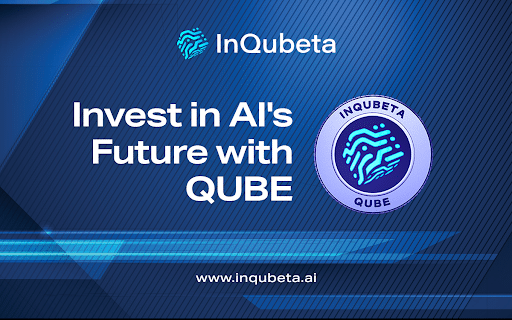[ad_1]
Within the burgeoning world of Decentralized Finance (DeFi), there are nonetheless hurdles to clear on the trail to international adoption. In response to Enrico Rubboli, the CEO of Mintlayer, a layer 2 resolution constructed on the Bitcoin blockchain, one such roadblock is the shortage of integration with real-world property. Rubboli asserts that for DeFi to flourish really, it must open its doorways to real-world property. Right here is the place InQubeta, an AI-centric crypto venture, steps in, promising to bridge this hole successfully.
The Problem in DeFi: Integrating Actual-World Property
Rubboli’s assertion captures a big situation throughout the DeFi ecosystem. Presently, the vast majority of DeFi lending platforms solely settle for cryptocurrencies as collateral, which limits their accessibility to companies that primarily take care of real-world property. For DeFi to faucet into the trillions of {dollars} tied up in real-world property, it wants to plot mechanisms to make the most of such property as collateral.
Nevertheless, this integration is fraught with difficulties. Actual-world property typically require authorized enforcement and localized information, issues that the DeFi ecosystem, in its current state, struggles with. Moreover, points associated to the asset’s valuation, custody, and danger evaluation pose substantial challenges.
InQubeta: Offering a Resolution
InQubeta, with its groundbreaking method, affords an modern resolution to this downside. As a pioneering AI-focused crypto venture, it goals to permit fractional funding in AI startups utilizing its native QUBE token. This distinctive proposition bridges real-world property (AI startups) and the DeFi ecosystem.
Fractional Funding: Democratising Finance
By tokenizing fairness in AI startups, InQubeta allows companies to entry the liquidity of the cryptocurrency market, probably unlocking a brand new avenue for funding and funding. Fractional possession reduces the limitations to entry, opening the way in which for extra buyers to take part within the progress of those startups.
On the similar time, introducing real-world property into the DeFi ecosystem enhances its total worth proposition. The flexibility to lend and borrow towards these property provides a brand new dimension to the DeFi panorama, making it extra engaging to conventional buyers and companies.
InQubeta’s method additionally addresses the problems of danger and belief within the DeFi sector. Using top-notch tech for danger evaluation and token valuation, InQubeta can considerably scale back the danger related to real-world asset integration. Moreover, the venture’s decentralized mannequin of governance and the transparency inherent to blockchain expertise foster belief amongst individuals.
Conclusion: An Evolving Ecosystem
The mixing of real-world property into the DeFi house represents a big step ahead within the evolution of the crypto sector. Whereas there are hurdles to beat, the efforts of tasks like InQubeta spotlight the potential of this amalgamation.
InQubeta’s distinctive fractional funding mannequin is a testomony to the modern options the crypto sector can deliver to longstanding points in finance. As extra tasks discover comparable paths, the convergence of DeFi and real-world property might herald a brand new period in international finance, unlocking alternatives for buyers and companies alike. In such a dynamic panorama, InQubeta continues to solidify its function as a trailblazer, reshaping the contours of the crypto house.


